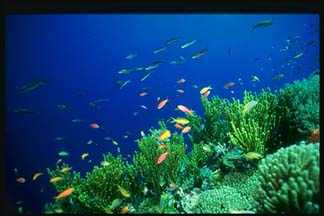School of Anthias over green algae
Click on image for full size
Image courtesy of Corel Photography
Related links:
A Matter of Scale - interactive showing the sizes of things, from very tiny to huge - from NSF
Microscopic Fossils Offer Big Clues to Earth's Climate
Kingdom Protista
Members of the Kingdom Protista are an unusual group of organisms that
were put together because they don't really seem to belong to any other
group. Some protists look or act like
plants, others look and act like
animals, but they're not!
In some ways, the Kingdom Protista is home for the "leftover" organisms that couldn't be classified elsewhere. You might not think a tiny one-celled amoeba has much in common with a giant sea kelp, but they're both members of this kingdom.
You might also be interested in:

Kingdom Plantae has almost 300,000 different kinds of plants. Plants are found all over planet Earth. They can live in fields, in swamps, in oceans and in the desert. They can live where it is hot and
...more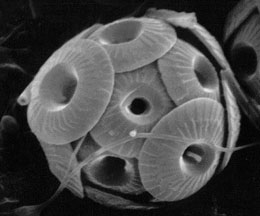
Aerosols are tiny particles that float around in the air. Some are tiny drops of liquid. Others are solid. They are all very, very small. Some aerosols come from the ocean. Small particles of sea salt
...more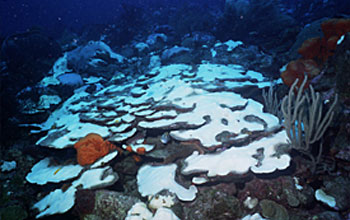
The Caribbean Sea is usually warm. But it was much warmer than normal in 2005. The heat made corals less healthy. Scientists say that a tiny type of algae helped some corals to survive. Corals and the
...more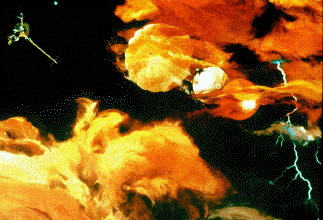
Jupiter's atmospheric environment is one of powerful winds, going 250 miles per hour, and temperatures from -270 degrees to +32 degrees (freezing temperature). These winds make it hard for life forms to
...more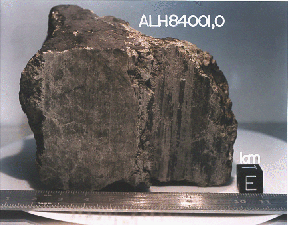
In July, 1996 a team of scientists said that they had discovered possible fossils of bacteria in a meteorite named ALH84001 that came from Mars. It was found in Antarctica in 1984 after having landed there
...more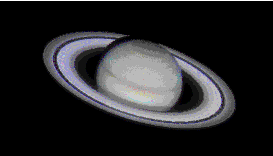
Saturn's atmospheric environment is one of powerful winds, going 250 miles per hour, and temperatures from -270 degrees to +80 degrees. With winds like these, it is hard to have peace and quiet. The region
...more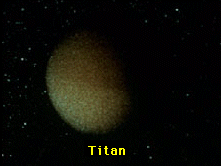
The air of Titan is a lot like the Earth's, except that it is very cold, from -330 degrees to -290 degrees! Like the Earth, there is a lot of Nitrogen and other complex molecules. There also may be an
...more


